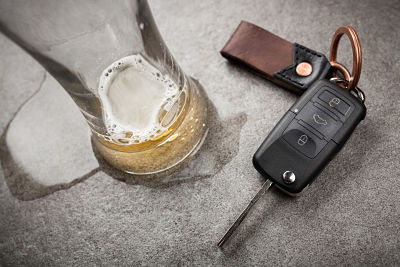The United States Constitution states that no person may be “subject for the same offense to be twice put in jeopardy of life or limb.” In plain terms, this “double jeopardy” clause means you cannot be tried by the state twice for the same crime. So if you are acquitted by a jury of an offense, such as DWI, prosecutors cannot retry you in the hopes of getting a conviction the second time.
Houston Court: Failure to Object Does Not Equal Consent
Not every trial ends with a guilty verdict or an acquittal. Sometimes the judge is forced to declare a mistrial. If this happens in a DWI case, for instance, is the defendant free to go? Or can the prosecution retry them?
The normal rule in these situations is that when a mistrial is declared after a jury is sworn, but before it reaches a verdict, the prosecution may not subsequently retry the defendant. However, if the defendant consents to the mistrial, then retrial is permitted. Ideally, the defendant gives consent explicitly, but Texas courts have said consent “may be implied from the totality of circumstances attendant to a declaration of a mistrial.”
But is a defendant’s failure to object to a mistrial enough to “imply” consent for a retrial? The Texas 1st District Court of Appeals recently addressed this question in the context of a DWI case from right here in Harris County. Prosecutors charged the defendant in this case with DWI. The state’s case largely revolved around a blood test administered to the defendant at the time of his arrest.
By law, the prosecution must turn over any incriminating evidence to the defense prior to trial. Here, the prosecution provided some of the evidence related to the blood test but not all of it. After the jury was sworn and the trial began, the prosecution attempted to introduce some of the evidence that had not been provided to the defense.

The defendant’s attorney objected. The trial judge, recognizing this was a problem, temporarily adjourned the trial to give the prosecution an opportunity to disclose the remaining evidence to the defense. The defense then asked for a continuance, i.e., additional time to review this newly disclosed evidence.
The judge, however, decided to declare a mistrial instead. The defense did not make a formal objection to this in the record. Afterwards, the prosecution decided it would retry the defendant.
The defendant then applied for a writ of habeas corpus, essentially an order declaring that retrial would violate the Constitution’s double jeopardy clause. The trial court declined to issue the writ, but the 1st District did, and in doing so dismissed the original DWI indictment.
The appeals court explained that when looking at the “totality of the circumstances,” there was no “affirmative evidence” that the defendant ever consented to the trial judge’s unilateral declaration of a mistrial. Indeed, the defense expressly requested a continuance, meaning the original trial would have continued after a delay. But the mere fact that the defendant failed to object to the declaration of a mistrial was not enough to infer consent.
Speak with a Houston DWI Defense Lawyer Today
Even in a drunk driving case, the courts must still protect a defendant’s basic constitutional rights. A qualified Houston criminal defense attorney can help ensure the courts follow the law in this area. So if you have been charged with DWI and need legal representation, contact the Law Offices of Tad Nelson & Associates in Houston, Galveston or League City right away. Or call (281) 280-0100.